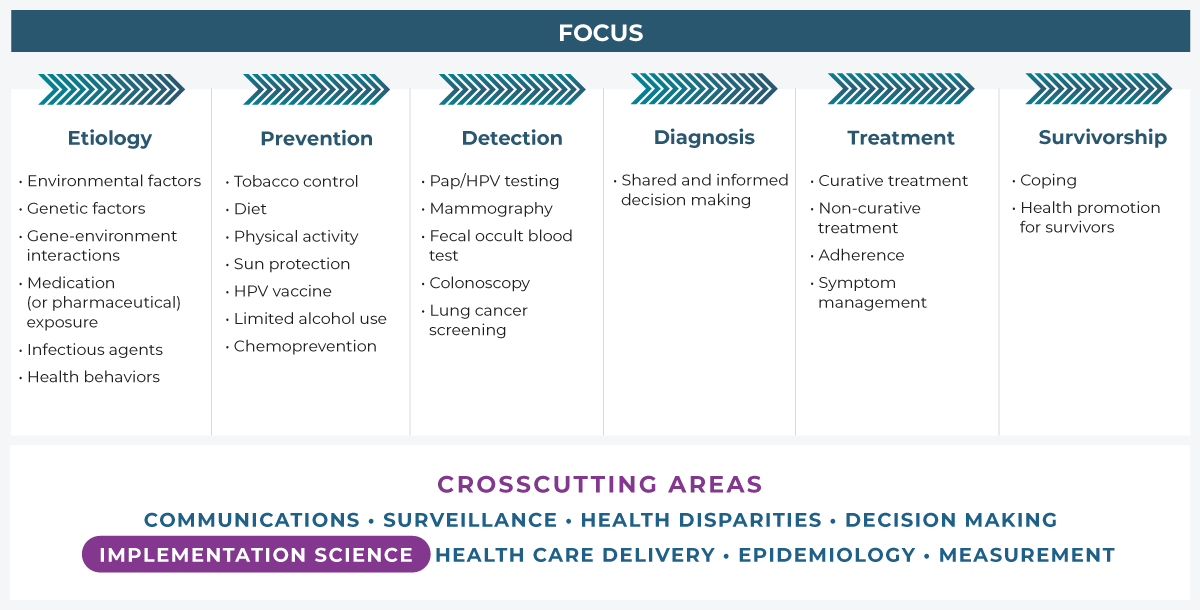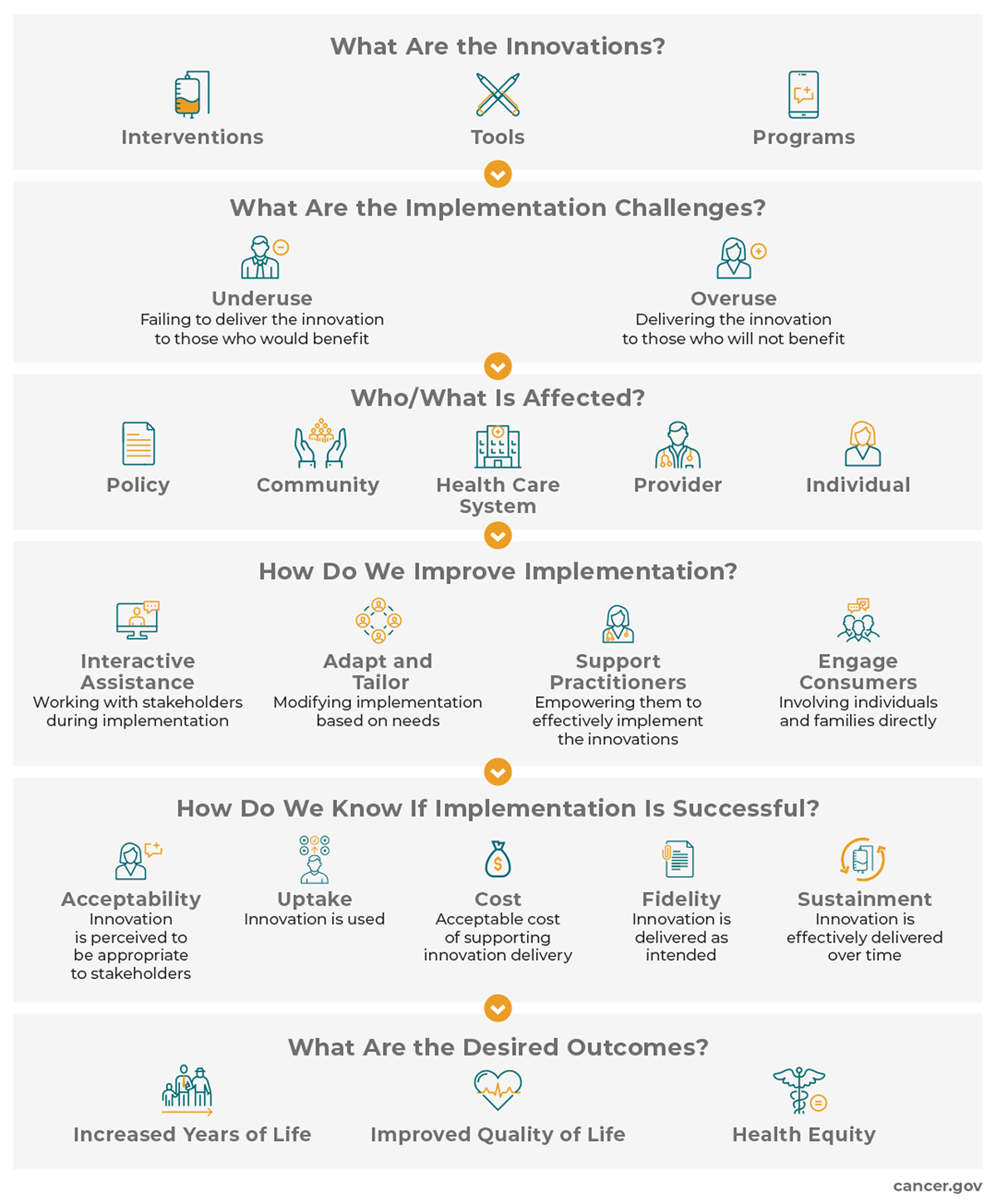Implementation Science in Cancer Control
Implementation science is defined as the scientific study of the use of strategies to adopt and integrate evidence-based health interventions into clinical and community settings to improve individual outcomes and benefit population health. Broadly speaking, implementation science seeks to understand how best to disseminate, integrate, and sustain evidence-based interventions in health care and public heath settings. Implementation science in cancer research has made significant strides in recent years, moving beyond identifying barriers toward the adoption of interventions, and increasingly focused on intervention adaptation, sustainment, implementation strategies, and de-implementation of ineffective practices. This significant work is most often addressed by interdisciplinary collaboration of research teams and practitioners to implement effective cancer control programs in their efforts to prevent and mitigate the effects of the disease.
Implementation science has long been supported across the entire NIH. At NCI, implementation science is largely led by DCCPS, through funded studies, conferences, priority setting, and training programs. The mission of the DCCPS Implementation Science Team is to develop and apply the implementation science knowledge base to improve the impact of cancer control and population science on the health and health care of the population, and foster rapid integration of research, practice, and policy. Much of this work is carried out in partnership with other institutes across NIH; other government agencies, such as the Agency for Healthcare Research and Quality and the US Department of Veteran Affairs; and with non-governmental organizations, such as AcademyHealth and the Patient-Centered Outcomes Research Institute.
In 2016, the importance of implementation science in cancer control was elevated when the Cancer MoonshotSM Blue Ribbon Panel selected implementation science as one of the seven focus areas around which to form a working group. The working group led discussions that would ultimately inform the panel’s recommendations for accelerating progress toward the reduction of cancer burden in the population. The final Blue Ribbon Panel group refined recommendations and came up with three areas that the NCI should take on, each of which became a Cancer Moonshot Implementation Team:
- Hereditary cancers
- Expanding use of cancer prevention and early detection strategies
- Symptom management
In its Annual Plan & Budget Proposal for FY 2021, NCI also featured implementation science as a high-priority area of research for the institute. The plan emphasizes the institute’s commitment to continued investment in building the field and its workforce, as well as NCI’s goal of moving toward a future of “precision implementation,” by continuing to provide resources, training, and collaborative opportunities.
Today, there is a clear recognition across the entire cancer research community that implementation science plays a crucial role in public health and cancer control. Implementation science is integrated throughout the cancer control continuum—from etiology through survivorship—and it is similarly present throughout the DCCPS research grant portfolio. To ensure maximum impact and continued growth of the field, sustained research funding, training, tools, and methods development will all be critical. As the hub for implementation science at NCI, DCCPS is committed to advancing the field and supporting our investigator community’s efforts to ensure robust evaluation and adoption of effective implementation strategies so that optimal cancer care reaches every segment of the population.
The Cancer Control Continuum

Implementation Science
Research discoveries have led to interventions, tools, and programs to better prevent, diagnose, and treat cancer. Yet these innovations can be underused and overused. Implementation science is a research endeavor that studies ways to optimally deliver these innovations to those who will benefit.


